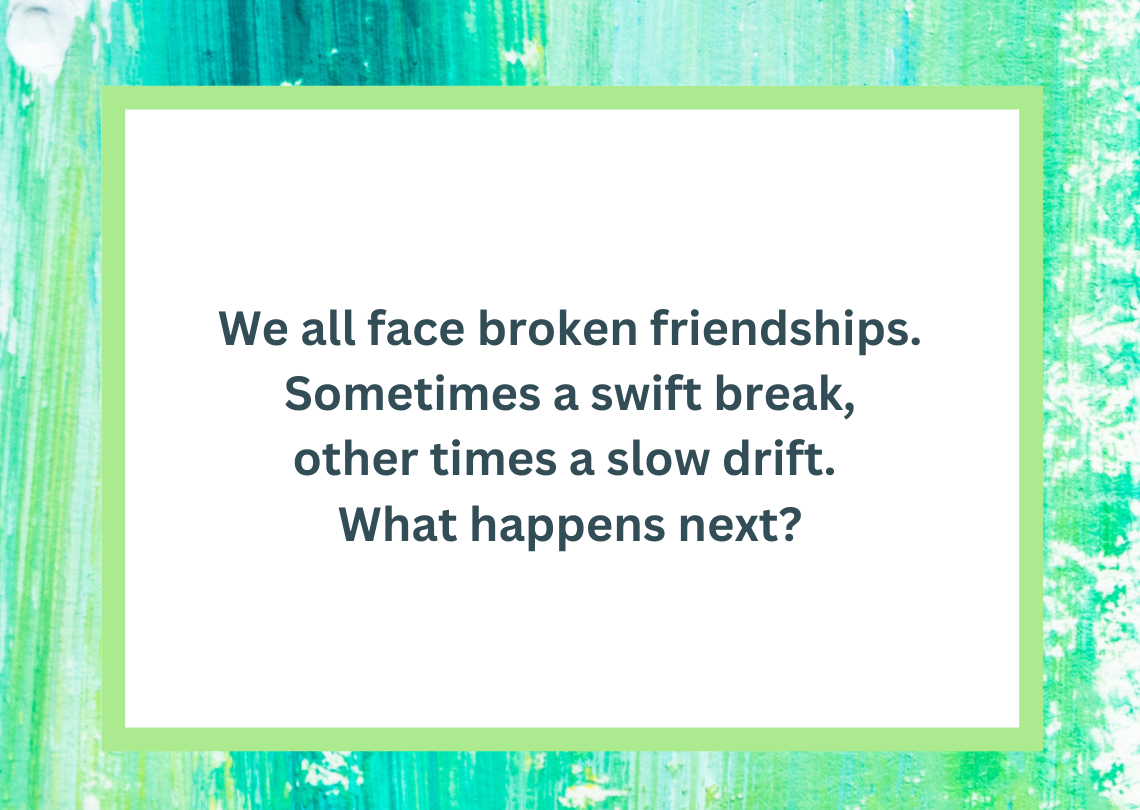When a Friendship Falls ApartSýnishorn


Clarification: The First Step toward Healing
In Luke 10, we read about a moment of tension between two sisters, Mary and Martha. Martha thought the problem was her sister’s laziness and selfishness, but Jesus diagnosed the issue differently. Although Martha’s desire to serve was admirable, Jesus discerned that her good intentions had devolved into worry and stress. Martha was not being mistreated by her sister; Mary was simply choosing to be present in her discipleship. Jesus’ fair-minded analysis of the sisters’ tension was a helpful first step toward possible resolution.
I invite you to begin your healing journey by clarifying what went wrong in your friendship. In my experience, friendships fall apart in different ways:
Maybe you entered different seasons of life, and you no longer had much in common.
Maybe one Big, Awful Misunderstanding took a catastrophic turn—un-take-back-able words, dramatic door slams—and almost overnight, the friendship was severed.
Maybe hurt feelings and unhealthy patterns snuck in over time, small fissures in your trust that eventually widened into a chasm that feels uncrossable.
Or maybe nothing happened at all—and that’s the problem. You just . . . drifted. Stopped calling, stopped making time for each other. One day, you looked up to find an ocean between you.
Other causes for separation may be having different definitions of friendship, having mismatched expectations for one another, or giving in to an undercurrent of competitiveness and envy.
Do any of these struggles feel like a fit? Taking a step back to identify what went wrong can help you to begin processing a break. An accurate diagnosis sets us free from wild thoughts that place unfair, one-sided criticism and blame on ourselves—or our friend. It helps us to “file” the loss in our heart; we can say, “This is what happened and why.” Even though that knowledge may not change the outcome, it may allow us to lay the loss to rest and think through any changes we want to make moving forward in our own behaviors—or in patterns we allow to develop in other friendships.
Even if you still feel like the walking wounded, I hope today’s devotion helps you to take a few steps toward healing. In time, I pray the pain will be less debilitating. In the coming days, we’ll identify practices and perspectives that can help you begin putting the pieces of your heart back together and help you muster the courage to work your friendship muscles again, however weary and worn they may be.
Ritningin
About this Plan

Hurt happens even in close friendships, and sometimes friendships fall apart. In the aftermath, we face complex emotions: anger, hurt, guilt, shame, insecurity, and fear. This plan will help you move toward healing and forgiveness (even when forgiveness is hard). It will encourage you to find the courage to open your heart to new friendships and to continue drawing closer to the Friend who will never leave.
More








